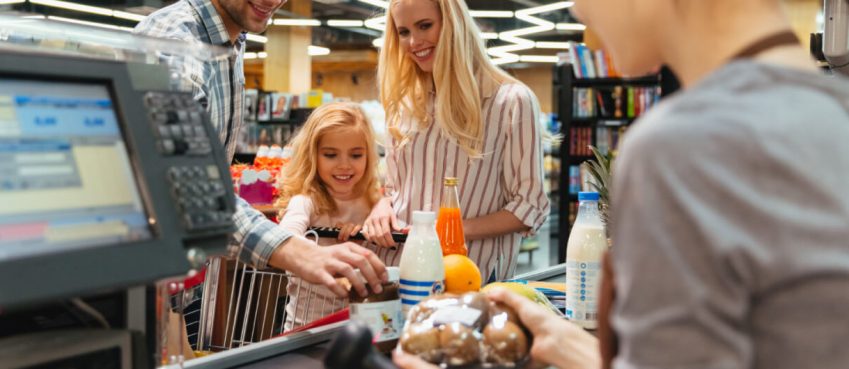
Today’s consumers are becoming more conscious of the importance and benefits of environmental sustainability. They will choose products that can preserve our planet’s finite resources.
E-commerce companies are making a profit and doing their part to help the environment by focusing on sustainability. E-commerce in India is booming and environmental awareness is a new trend.
E-commerce businesses and D2C companies will need to focus on environmental sustainability. Brands that don’t adapt to changing times may lose their market share. Many legacy brands have started to embrace this trend and have launched ‘healthier, better-for-you sub-brands in recent years.
“We have seen that our audience is leading in adapting sustainability and conscious consumption. We have created a communication curve for our audience based on the self-care characteristics of millennial life.
(adsbygoogle = window.adsbygoogle || []).push({});
We educate and communicate with them about our products and solicit their feedback so that we can develop our plans. Tarun Sharma, CEO, caffeine.
Factors Leading To Awareness
Nielsen conducted a global survey of almost 30,000 people and found that more than 70% of GenZ respondents and 88% of millennials expect brands to be more sustainable. They also want to vote with their money.
Panic drives humanity. We have all witnessed calamities such as heatwaves and forest fires in the past few years. Extreme weather changes caused by climate change have had devastating effects on our lives.
This has led to worries about the future of the planet. Rajeev Suri (managing partner at Orios Venture Partners), said that this is a cause for concern.
He said that most young people don’t have any vested interests that could prevent them from supporting legitimate causes. “GenZers tend to be more concerned with sustainability. They are also highly connected. Suri said that the sustainability wave is now being caused by a connected generation that can gain strength from one another.
In the past one-and-a-half years, it has become commonplace to stay at home. It is becoming more common for people to realize that everyone needs to ensure their health and reduce the impact on the environment.
Rohit Krishna, the general Partner, WEH Ventures, stated that COVID reminded everyone of the importance of staying healthy. He or she could use more supplements, exercise at home, better snacks, and other spillover effects.
Also read: 9 Best Cybersecurity Companies in the World
Initiatives By These Brands
Flipkart Group launched a series on environmental sustainability interventions in June 2013. It claimed that it had reduced single-use plastics use by 50% in its supply chain.
Flipkart’s environmental sustainability efforts include the use of electric vehicles in its last-mile delivery network, resource efficiency, renewables, waste management, and ISO 14001 certification of strategic facilities.
Amazon India also announced in June 2020 that it had achieved a major milestone in its efforts to sustain itself by eliminating single-use plastics in packaging from 50 fulfillment centers across India.
For many years, leading brands like Starbucks, Unilever, and The Body Shop have focused on sustainability. In fact, Havells India was included in the Dow Jones Sustainability Index (DJSI), which included 12 Indian companies.
D2C brands today are following the lead of e-commerce giants by going green. MyGlamm, for example, claims that more than 90% of its product range is vegan.
“We have learned that as a brand that creates products that are in touch and relevant to our customers, we have discovered that they are conscious shoppers who are very aware of the ingredients in their products. They are looking for cruelty-free and clean products.
Responsible beauty is essential, as beauty cannot be achieved if there is harm done,” Darpan Sanghvi (founder and CEO of MyGlamm) said.
MyGlamm was founded in 2017 and recently closed its Series C funding of INR 530 crores. The brand’s core focus has been to promote healthy beauty habits for its customers. The company claims that its beauty products are innovative, high-efficacy, and good for you. They are PETA-verified.
caffeine claims that it offers 100 percent natural, Peta-certified vegan cruelty-free products. The startup also claims that it recycles more plastic than is actually used.
It claims it has earned 76375 plastic credits through the offset of equal quantities of plastic by using a mix of 80 percent glass and 20 percent recyclable plastic material.
Transparency is the key. Transparency is key. This starts with the packaging and continues to the communication on social media platforms. Krishna, from WEH Ventures, who has invested in Noto, said that Noto, a healthy brand of ice cream, was the first to highlight the calories in an Indian tub of ice cream.
Also read: The Five Best Free Cattle Record Keeping Apps & Software For Farmers/Ranchers/Cattle Owners
Efforts Needed
COVID-19 is a great way to reduce pollution and has redirected the focus of the average man towards the environment. But, there is still much to do.
“In the past one-and-a-half years, we have reduced our dependence on oil and have made every effort to be more sustainable. They have been enabled by technological innovations. Suri, Orios Venture Partners said that the innovation must be supported by disruption in the entire industry.
Experts agree that brands must embrace it wholeheartedly and not just in small pieces. “What is good for you may not be the best for the rest of us.
These are two distinct things. The former must be satisfied by focusing more on the carbon footprint of shipping and manufacturing. Krishna, from WEH Ventures, said that Switch Fix is one of the brands that has fully embraced this concept.
Top 10 News
-
01
10 Exciting iPhone 16 Features You Can Try Right Now
Tuesday November 19, 2024
-
02
10 Best Anatomy Apps For Physiologist Beginners
Tuesday November 12, 2024
-
03
Top 10 Websites And Apps Like Thumbtack
Tuesday November 5, 2024
-
04
Top 10 Sites Like Omegle That Offer Random Video Chat
Monday October 21, 2024
-
05
Entrepreneurial Ideas To Make 5K In A Month (10 Realistic Wa...
Monday October 7, 2024
-
06
[10 Best] Cash Advance Apps Like Moneylion And Dave (No Cred...
Friday September 20, 2024
-
07
Top 10 Richest Person In The World
Tuesday August 27, 2024
-
08
Top 10 Unicorn Startups In The World (2024-25)
Monday August 26, 2024
-
09
Top 10 IT Companies In The World By Market Cap
Thursday August 22, 2024
-
10
[10 New] Best OnionPlay Alternatives To Stream TV Shows And ...
Tuesday June 11, 2024







